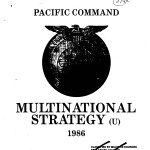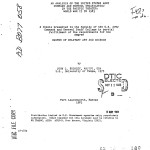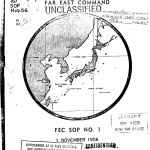- DETERRENCE: Assuring South Korea and Japan as the role and number of U.S. nuclear weapons are reduced
- DPRK: North Korea may lose 700,00 tonnes in crops: report
- ENERGY SECURITY: 300 million without electricity in India after restoration of power grid
- GOVERNANCE AND CIVIL SOCIETY: Territorial disputes prevent cooperation in East Asia
- CLIMATE CHANGE ADAPTATION: Understanding the costs and benefits of disaster risk reduction under changing climate conditions: case study results and underlying principles
- AUSTRAL PEACE AND SECURITY: Smith seeks to boost regional defence
Archives
President Lee Myung-bak’s diplomatic leadership challenge
President Lee Myung-bak’s diplomatic leadership challenge
by Yi Kiho, NAPSNet Contributor
South Korea President Lee Myung-bak made an unprecedented visit to Dokdo (Takeshima in Japan) abruptly on the afternoon of August 10……
Pacific Command Multinational Strategy

The United States Pacific Command (USPACOM) Multinational Strategy (MNS), published in 1986, defines USPACOM objectives in working with each nation in the pacific theater.
The report states that “the need for a multinational strategy was first expressed in the Defense Guidance budget of President Reagan’s administration. The Defense Guidance stated that global strategy required the U.S. and its allies to contain and reverse the expansion of Soviet control and military presence throughout the world.”
The MSN thus examines the objectives of the USPACOM in working with multiple nations. The report states that “the USPACOM Stategy is built primarily on a foundation of bilateral relationships. Larger regional coalitions, to the extent that they can exist, depend on these bilateral relationships and the interactions of the coalition members.”
This report was released to the Nautilus Institute under the US Freedom of Information Act (FOIA).
Nautilus Peace and Security Weekly – 16 August 2012
- DETERRENCE: How defense austerity will test U.S. strategy in Asia
- DPRK: DPRK delegation visits Beijing
- ENERGY SECURITY: Climate change is here – and worse than we thought
- GOVERNANCE AND CIVIL SOCIETY: S. Korea’s Lee tells Japan to settle grievances
- CLIMATE CHANGE ADAPTATION: Community-based climate adaptation planning: case study of Oakland, California
- CLIMATE CHANGE AND SECURITY: The hunger wars in our future
Rio+20 – The Future We Want

Rio+20 – The Future We Want
by Saleem Janjua– Climate Change Adaptation Contributor
The Rio+20 UN conference on sustainable development ended with an ineffectual and hollow document, titled ‘The Future We Want’……
An Analysis of the United States Army Command and Control Organization in the Pacific Theater: World War II to 1983

This 1983 report by John L. Buckley “examines the need for reorganizing the United States Army command and control structure in the Pacific theater both to meet peacetime requirements and to ensure an effective transition to war. The investigation is focused on an analysis of historical experience, contemporary issues in the theater, and the results or the five most recent studies on the subject. The study postulates a detailed reorganization proposal, beginning with the establishment of a Northeast Asia Command.
Conclusions reveal that or the Army structure must be done in a joint context and must accommodate the sensitivities and complexities of both military and political requirements. The current structure, although workable, is not optimal to ensure a transition to regional, theater, or global war. Should an effective remedy not be applied before the outbreak of hostilities in the region, the price of transition will be expensive in both time and resources. That remedy should be in the form of a Northeast Asia Command.”
This report was released to the Nautilus Institute under the US Freedom of Information Act (FOIA).
Rowing between two reefs: China, the United States and containment revenant
Rowing between two reefs: China, the United States and containment revenant
by—Richard Tanter, NAPSNet Contributor
This year’s Shangri-La Security Dialogue had all the hallmarks of a dialogue of the deaf. Indonesian president Susilo Bambang Yudhoyono keynote address put a strong case….
Nautilus Peace and Security Weekly – 9 August 2012
- DETERRENCE: Russia plans limited endorsement of Southeast Asian Nuke-Free Zone
- DPRK: Rare earths bankroll North Korea’s future
- ENERGY SECURITY: A bumpy road for nukes
- GOVERNANCE AND CIVIL SOCIETY: Anti-nuclear campaigners launch Japan’s first green party
- CLIMATE CHANGE ADAPTATION: The future we want, Rio+20 Outcome document
- AUSTRAL PEACE AND SECURITY: US wrong on China: Keating
Far East Command Standing Operating Procedure No. 1 for Atomic Operations in the Far East Command

This 1956 report was “promulgated for the purpose of establishing normal procedures which will ensure the most efficient and expeditious employment of atomic weapons in accordance with JCS policy…Upon initiation of hostilities, on a scale warranting the use of atomic weapons, it is expected that Commander-in-Chief, Far East (CINCFE) will be authorized to employ atomic weapons, in the accomplishment of the theater mission…This standing operating Procedure (SOP) established the procedure to be used in the Far East Command (FEC) for the control and expenditure of atomic weapons. The procedures set forth herein shall be adhered to by all commands concerned with the planning for and execution of atomic strikes…”
This report was released to the Nautilus Institute under the US Freedom of Information Act (FOIA).
Nautilus Peace and Security Weekly
- DETERRENCE: U.S. force posture strategy in the Asia Pacific region: an independent assessment
- DPRK: Troop deployment row halts China-N. Korean island project
- ENERGY SECURITY: India’s power network breaks down
- GOVERNANCE AND CIVIL SOCIETY: China protests highlight simmering unrest
- CLIMATE CHANGE ADAPTATION: The economic value of natural and built coastal assets, Part 2: built coastal assets
- CLIMATE CHANGE AND SECURITY: Global warming’s terrifying new math

